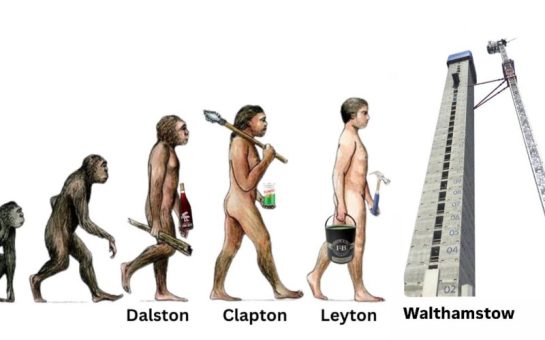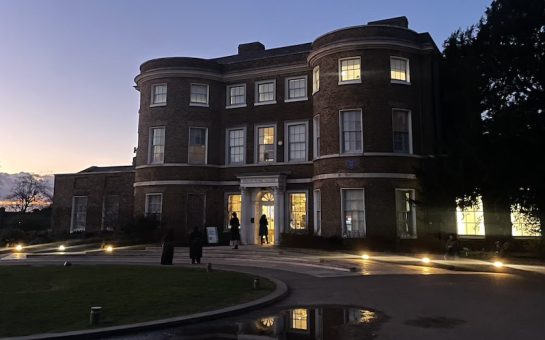Teachers are calling for the government to introduce new measures to tackle a steady decline in language learning in English schools.
Data from exam regulator Qfqual reveals that the number of pupils in England studying modern foreign languages at GCSE and A-Level has decreased significantly since the requirement to take a language in Key Stage 4 was scrapped in 2004.
GCSE entries for French have dropped by a third between 2008 and 2022, while entries for German have more than halved.
Spanish is the only language to have increased in popularity during this period — entries have risen by 73%, largely at the expense of French and German.
However, the trend for language learning in England as a whole is one of consistent decline, with figures showing an overall decrease in entries of 17% since 2008.
A-Level entries in England were already at much lower levels than GCSE in 2008, but have seen even greater levels of decline in recent years.
French A-Level entries in England have fallen by 44% and German entries have plummeted by almost 55%.
Spanish has managed to buck the trend — albeit to a lesser extent than at GCSE — registering a rise of a third.
Overall A-Level entries have dropped by 27% since 2008.
The root of the problem
A French and German teacher at a state secondary school in Walthamstow, who wishes to remain anonymous, expressed her worry at the falling rates of language learning in schools.
She said: “It’s scary to look at the numbers year on year. I’m a newish teacher, and I just think to myself: where are we going to be in 20 years’ time?”
She believes the current curriculum is far too prescriptive, which dissuades students from studying languages at GCSE and beyond.
She said: “Language GCSEs are hard compared to a lot of subjects. They’re seen as an ‘academic’ GCSE, and as it stands I don’t think they would be the right choice for everyone.
“The mark scheme is very rigid and the language can come out quite stilted and scripted.
“It’s really hard to balance a love of the natural language with the need to get pupils through the GCSE.”
She argues that government action should go beyond target-setting and focus on changing more deeply-ingrained beliefs about languages in wider society.
She said: “England is so insular in its attitude, so pupils don’t see many other people speaking other languages, and they just don’t see the importance of it, especially in comparison to other countries where they start learning it much younger.
“It’s a massive issue that can’t be solved within a classroom.”
Failing reform
In 2020, the British Council’s annual Language Trends report warned that language learning in the UK is in a state of crisis.
The organisation has raised concerns that disruption caused by the Covid pandemic, declining international engagement in schools post-Brexit and harder GCSE and A-Level exams have worsened the problem.
Government attempts at encouraging modern foreign language uptake in recent years have yet to show positive results.
In 2010, then-education secretary Michael Gove introduced the English Baccalaureate (EBacc) which measures the proportion of students who secure a C-grade or above in English, Maths, Science, a humanity and a language GCSE.
The Department for Education now aims to make this selection of subjects compulsory for the vast majority of GCSE pupils, setting a target of 75% of pupils entering the EBacc by 2022 and 90% by 2025.
However, according to the FTT Education Datalab, only 38.7% of pupils, were entered for the EBacc in the summer of 2022, around half the target percentage.
In a report published by University of Buckingham’s Centre for Education and Employment Research (CEER) last year, Professor Alan Smithers predicted that the EBacc will likely be phased out due to stubbornly low rates of language take-up amongst GCSE pupils.
He said: “There is a recognition by the government that it is not going to be possible to create a core of subjects that insists on a foreign language.”
A new approach
Moreover, levels of multilingualism in the UK trail far behind that of other European countries.
According to Prospect Magazine, only around a third of young Brits can read and write in a second language, compared to 99% of young Danes.
In a bid to close this gap, last year the government announced further reforms to French, German and Spanish GCSEs from 2024.
The new changes include a heightened focus on commonly-used words, a switch from vocabulary lists to ‘word families’ and assessment objectives that reflect real-life language use.
The government website states the changes aim “to make the subjects more accessible and attractive”, by “increasing clarity for teachers and improving the practical benefits for students”.
However, Roseanna Conway, a 25-year-old Spanish teacher at a Birmingham state secondary school, argues exam reforms fail to address other key problems causing barriers to language learning.
She said: “A massive issue for us is curriculum time. For example, in Key Stage 3, our children only learn Spanish for five hours across a fortnight.
“The lessons are so infrequent that they forget naturally what they’ve learnt.
“Also, primary schools are now required by the government to teach a language, but often primary schools do not coordinate with the languages taught at local secondary schools.”
She also believes that government investment to fund extra-curricular trips both locally and abroad would help boost interest in languages.
By offering pupils trips to local Spanish restaurants and cinema visits to watch Spanish films, the language department at Conway’s school has managed to more than double their GCSE intake for this year.
She added: “We put in effort as a department to promote languages, their potential career prospects and the skills you can gain.
“Reviving interest is difficult, but I’m trying my best all the time.”





Join the discussion